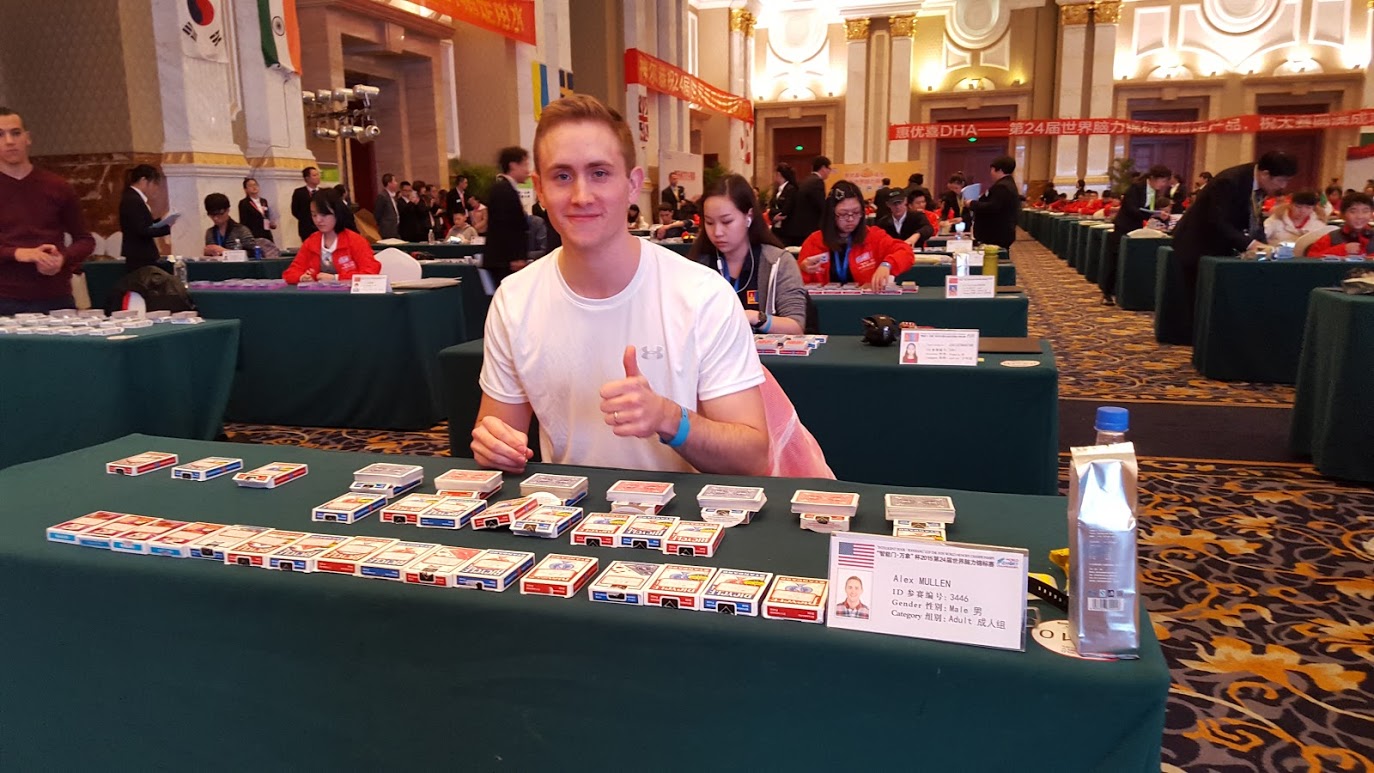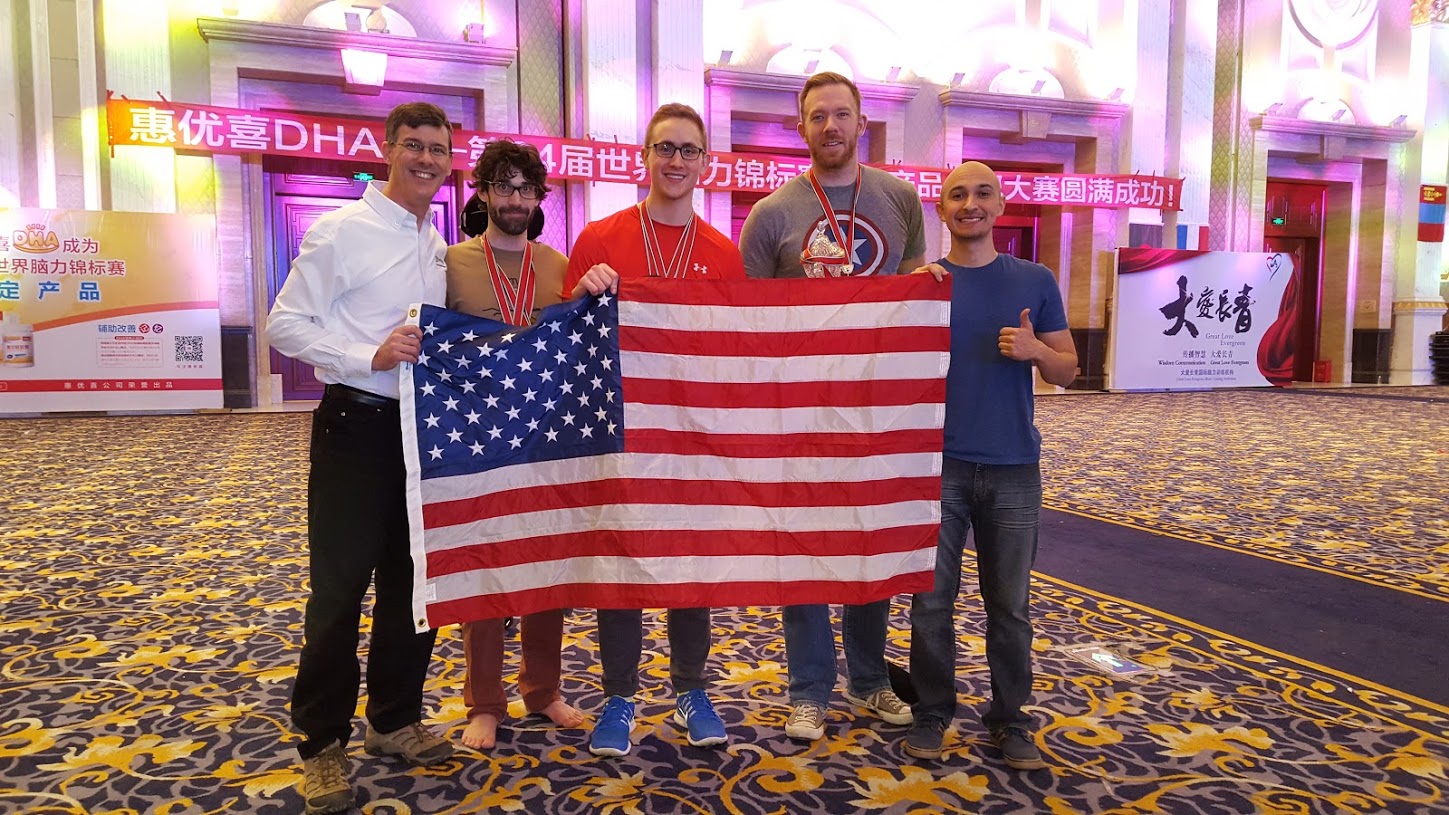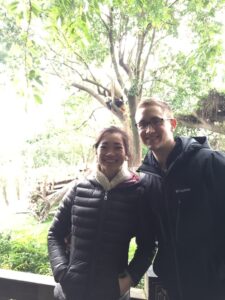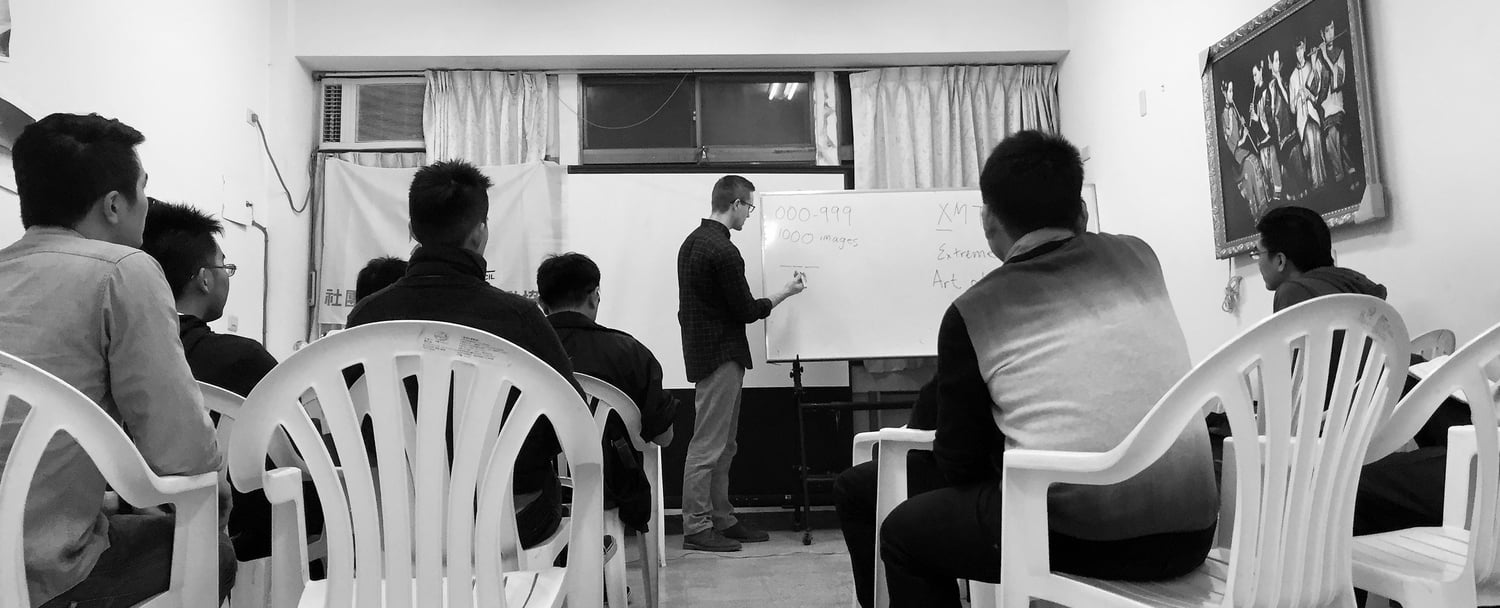
Last December, the first American won the title of 2015 World Memory Champion at the 24th World Memory Championships held in Chengdu, China. The long-time Oxford native, Alex Mullen, achieved the highest overall score ever in the history of World Memory Championship since its inception in 1991.
He became the first person to memorize over 3,000 digits in one hour. In doing so, he broke one world record and five U.S. records. At the competition, the events range from memorizing the order of a deck of cards to abstract shapes. He memorized 28 decks and four cards in one hour (a U.S. record), spent 21.04 seconds in memorizing a single deck (a U.S. record), memorized 3,885 binary digits (1s and 0s) in 30 minutes as well as 505 abstract shapes in 15 minutes (both U.S. records).
Mullen said, “It was an unbelievable three days for me. I feel incredibly lucky. I certainly didn’t expect to win. I knew that if I even wanted a chance at the title I’d need to have the most perfect competition of my life. Competing against the top guys like Marwin Wallonius and Simon Reinhard is always incredibly challenging, and both were incredibly strong throughout the year. I was sitting in second behind Marwin until the 10th and final event, speed cards, and luckily I managed a time that gave me the lead in the overall standings by just a hair. I was also really excited to see some old friends and make new ones, which is always a great thing at memory competitions. The whole experience still feels pretty surreal.”
Now in his gap year from the University of Mississippi Medical Center in Jackson, Mullen is teaching the world his invaluable memorization techniques. Below is a video of Alex issuing the 20 Word Challenge.
He has a website where he teaches memorization techniques: mullenmemory.com. Interested universities and businesses can also book him for lectures and workshops. Mullen offers personalized coaching too for one-on-one or for a group.
Mullen is a person of considerable talent and generosity, but he insists that his memorization skills came to be through consistent training.
Mullen said, “I definitely haven’t been a good memorizer my whole life. I was first introduced to the memory world when I watched at TED talk by Joshua Foer (“Feats of Memory Anyone Can Do”) in March of 2013, during my junior year of college. Foer’s the author of Moonwalking with Einstein, which is probably the most well-known account of memory techniques and competitive memory. His talk blew me away at the time, at least in part because I felt my own memory was poor and that it was hampering academically. This got me incredibly excited to try the techniques out for myself. To my great surprise, they worked very well.”

Mullen created systems for memorizing numbers and playing cards and since then he was hooked. He practiced for a year before his first competition, the 2014 USA Memory Championship where he finished in second place.
“I really didn’t have many expectations going in, so placing as high as I did definitely motivated me to continue practicing and to train for larger, more difficult competitions like the World Memory Championship.” Mullen said, “So at this point, I’ve been training for about three years.”
Leading up to the 2015 competition, he trained for 30 minutes to an hour each day, sometimes more on days when he practiced longer events. “I’ve maintained a pretty consistent training regimen since I first began in 2013. I’d also competed in four competitions prior to the World Championship.” Mullen said, “Having those experiences under my belt was definitely helpful. I also use them whenever I’m learning new info for medical school, so that acts as a kind of ‘cross-training.'”

His wife, Cathy Chen, who is also a student at the UMMC in Jackson, said, “One cool thing about Alex is that he’s extremely efficient with how he trains. The other competitors will train for hours a day. Many of them don’t have day jobs – this is what they do full time – whereas Alex is in medical school and trains for less than an hour a day. Often just 30 minutes a day. I think it’s tempting to say that he has talent – which he does – but if you ask him, he always says it’s just a matter of good training and technique. He honestly believes anyone can do this with a little practice.”
Mullen thinks Chen is his “most notable success story.” He said, “I taught her the techniques while we were in college, and now she’s probably a more avid user than I am!”

He and Cathy use the website, mullenmemory.com, as a platform to teach memorization techniques.
“It’s been fun to make tutorials and videos explaining the techniques and how to use them to learn more efficiently,” said Mullen. “I often get questions from students, and it’s a cool challenge working with them to develop a path forward.”

Chen remembers the college days where they applied memorization techniques to studies. “The way we tried to apply it back then and the way we use it now is pretty different.” Chen said, “It’s taken us years to figure out what works because memorizing a deck of cards is not the same as using these memorization techniques to learn. Now there’s nothing I learn that I don’t encode. Memorization gets a bad rap, but it shouldn’t. Without knowing what you know, you can’t make connections when learning something new.”
She has helped her husband hone his language as he teaches memorization techniques. Chen said, “I think by giving Alex the perspective of a non-competitor, I help him pick words and examples that address the questions a beginner would have.”
“We’re always thinking of ways to make this palatable and interesting to someone who has never seen it, or doesn’t think it applies to a non-World Memory Champion.” Chen said, “Trust me, (or just ask my sister), I have a terrible, terrible memory, and this works for me. We’ve always worked well together, and this has been a fun project for me. We talk about it all the time – there’s no escaping it because we live together!”
The star-crossed couple grew up together in Oxford. Mullen moved down to Oxford from Princeton, New Jersey when he was four. He and Chen went to Willie Price Lab School in Oxford, even though they don’t remember meeting in preschool.

Alex’s younger brother, Andrew, and Cathy’s younger sister, Dora, are only three months apart so the Mullen and Chen families became intertwined in Oxford as they took their children to karate, swimming, art lessons, piano, violin, camps, competitions and school newspapers.
“We also just hung out and watched movies and played games.” Chen said, “We were always eating at each other’s houses and celebrated New Years together every year. We also vacationed together: a two-week road trip to New Mexico, Arizona and Utah, a trip to New York, Chicago, Georgia for the fourth of July, Florida for spring break to name a few. Because of this, the four of us ‘kids’ still have a very special, natural friendship.”
“People often think Dora and Andrew are adopted siblings based on the way they interact and the two of them still hang out in college,” Chen said, “As as result of all the above, Alex and I spent a lot of time together in school and out of school. I mean, seriously, we shared pretty much every part of our lives.”

Even though Mullen went to Johns Hopkins University where he earned degrees in Biomedical Engineering and Applied Mathematics and Statistics while Chen went to Princeton for her degree in Chemical and Biological engineering, they had a long-distance relationship. And now the couple are happily married while studying at the UMMC in Jackson, Mississippi. Although, this year, they are taking a gap year before starting their third year at UMMC so they could teach the world how to utilize memorization.
Chen said, “It’s through Jim and Donna Barksdale’s generosity that we returned home to attend medical school at UMMC. One of the ways we intend to pay their gift forward is through promoting these really powerful, instinctive memory techniques as a free tool for our educators.”
She and Mullen work hard to promote the website, mullenmemory.com, so they could tell numerous people that with diligence anyone could possibly be as sharp as Alex Mullen was at the 2015 World Memory Championship.
Chen said, “People often say to us, ‘This is cool, but I don’t think I could possibly do it.’ I always say that my 50-years-young mother is doing this to learn Spanish. It’s true, though!”
Chen’s mother watches “every single video” and does all the techniques. Chen said, “When we go home, the two of them (her mother and Alex) are always talking about learning, memory techniques and helping each other with learning Spanish and Chinese, which Alex is learning. She’s very willing to test out these techniques and has found success with her recall of new vocabulary.”
Like how he helps his mother-in-law, Mullen wants to teach many people memorization skills for anything from academic studies to everyday living.
“Essentially, you can apply these techniques whenever you’d like to remember something. For many people, that could mean using techniques to remember the names of people you meet, foreign language vocabulary, or notes for presentations/speeches, among other things.” Mullen said, “I think the techniques are especially valuable for students, though. I use them for everything I learn in medical school and have found them incredibly helpful. They allow you to tap into the strongest aspects of your natural memory so that you can make what you learn really stick.”
To learn more, visit mullenmemory.com to see multiple videos on memorization techniques as well as booking Mullen to help coach at the universities, businesses or for one-on-one sessions.
Callie Daniels Bryant is the senior managing editor for HottyToddy.com. She can be reached at callie.daniels@hottytoddy.com.
Follow HottyToddy.com on Instagram, Twitter and Snapchat @hottytoddynews. Like its Facebook page: If You Love Oxford and Ole Miss…

